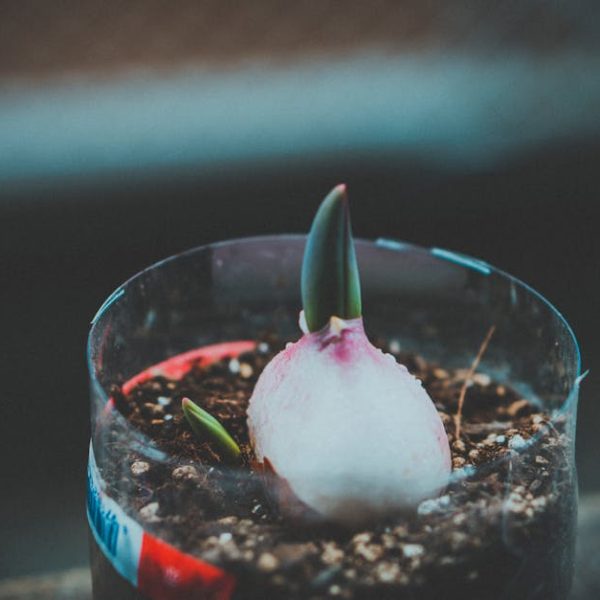As a healthy, low-carb substitute for pasta, spaghetti squash is beloved by many. Yet, even the best recipes cannot help when spaghetti squash loses its freshness. This delicate vegetable, loaded with fiber, potassium, vitamin C, and other nutrition, can be stored accurately for future use. Proper storage is imperative to enjoying the most out of your spaghetti squash while ensuring that none of it goes to waste.
Understanding Spaghetti Squash: From Selection to Refrigeration
Spaghetti Squash, aptly named for its unique, spaghetti-like strands when cooked, is a versatile vegetable that brings a sweet and mild flavor. It’s a powerhouse of nutrition and can be stored for later use with appropriate practices. However, to enhance storage life, it begins with a good selection.
Tips to select the best squash:
- Look for hard, shiny, and uniform color squash.
- Avoid squash with cracks, soft spots, or punctures.
- Heavier squash tends to have high moisture content, making it a good choice.
✔️ Pre-Refrigeration Checklist:
- Select a fresh and healthy squash.
- Handle with care to avoid bashing or bruising that might accelerate spoilage.
- Store the squash in a cool, dark place until you’re ready to refrigerate it.
The Importance of Properly Cleaning Spaghetti Squash before Refrigeration
The exteriors of spaghetti squash can harbor dirt and potential bacteria. Therefore, cleaning squash is a crucial practice that can significantly extend its shelf life.
✅ Steps to clean squash:
- Use a clean, damp cloth to gently wipe the surface.
- Do not use dish soap or vegetable wash.
- Completely dry the squash before refrigeration.
Best Practice: Always clean your squash right before you plan to refrigerate it. Doing it earlier can introduce moisture leading to fungal and bacterial growth.
Effective Methods to Refrigerate Spaghetti Squash
Refrigeration is an efficient way to extend the life of a spaghetti squash. The way you refrigerate can make a substantial difference in the freshness and taste of the squash.
Pro tips:
- Keep the refrigerator temperature below 40°F (4°C).
- To avoid moisture buildup, do not wash the squash before refrigeration.
- Store squash in the vegetable crisper for optimal humidity control.
All there is to know about packaging spaghetti squash for refrigeration, maintaining its taste, and checking its freshness will be detailed in upcoming sections.
Proper Packaging of Spaghetti Squash for Refrigeration
How you package your spaghetti squash for refrigeration can dramatically affect its quality and shelf life. Adequate packaging prevents cross-contamination and exposure to unfavorable conditions in the refrigerator.
✔️ Essential items for packing squash:
- Clean, dry towels or paper towels for wrapping the squash.
- Airtight containers or heavy-duty freezer bags to isolate the squash from the fridge environment.
Pro tips:
- Upcycle or use compostable materials for eco-friendly packaging.
- Subtract as much air as possible from storage containers to limit possible bacteria exposure.
Guidelines for Checking Freshness of Refrigerated Spaghetti Squash
Regularly checking the freshness of stored spaghetti squash helps to ensure it is at its best when you choose to use it, reducing food waste.
✔️ Steps to inspect and test squash freshness:
- Check for any mold or rot, indicated by dark, soft spots.
- Smell the squash to ensure there’s no sour or off-putting aroma.
- Feel the texture of the squash. It should be smooth and firm, not wrinkled or slimy.
Best Practice: Use spaghetti squash within 5-7 days of refrigeration, although it may last up to 10-14 days if stored properly.
The Method Makes The Difference: Comparing Refrigeration Options
| Method | Pros | Cons |
|---|---|---|
| Whole squash in crisper | Preserves moisture, keeps it fresh longer | May take up significant refrigerator space |
| Cut squash in airtight containers | Reduced space requirement | Faster drying out, use within a week |
| Freezing | Extends life up to 3 months | Texture and taste may degrade, requires thawing |
Spaghetti squash is a delicious, nutritious, and versatile vegetable. Understanding the right ways to select, clean, refrigerate, package, and check its freshness ensures that you can enjoy it at its best long after purchase. Enjoy the culinary journey with this valuable advice in hand!
Key Takeaway:
- Selecting, cleaning, packaging, refrigeration, and regular checks are integral to the longevity and freshness of spaghetti squash.
- The ideal spaghetti squash for storage is hard, shiny, and uniform in color and free from cracks, soft spots or punctures.
- The squash’s outer layer can harbor bacteria, thus making the cleaning process crucial for extending its shelf life.
- The refrigeration method greatly affects the freshness and taste of the spaghetti squash.
- Packaging, if done properly, prevents cross-contamination and exposure to unfavorable conditions in the refrigerator, thereby prolonging the life of the squash.
- Regular freshness checks can help avoid food waste.
Caring for your spaghetti squash doesn’t need to be a stressful task. With the right methods, you can extend its shelf life and keep it as fresh as the day you bought it, ready to be transformed into your next delicious meal. Knowledge is power, and armed with these tips for selection, cleaning, storage, and refrigeration, you’ll have all the tools you need to keep your spaghetti squash fresh and delicious.
FAQs
Q: Can I store my spaghetti squash in the freezer?
A: Yes, you can store the spaghetti squash in the freezer to extend its life up to 3 months. However, freezing may alter its texture and taste, and thawing is necessary before cooking.
Q: How do I know if my refrigerated spaghetti squash has gone bad?
A: You should inspect your spaghetti squash for any signs of mold, rot, or dark soft spots. A sour or off-putting smell and changes in texture (wrinkled or slimy) are also indicators of a spoiled squash.
Q: Can I wash my spaghetti squash before storing it in the refrigerator?
A: While cleaning the squash is important to remove potential bacteria, it’s recommended to do so just before refrigerating and not prior. Washing could introduce excessive moisture which may lead to fungal and bacterial growth.
Q: Why should I use airtight containers or heavy-duty freezer bags for storing spaghetti squash in the fridge?
A: Airtight containers or heavy-duty freezer bags help isolate the squash from the overall fridge environment, preventing cross-contamination and exposure to unfavorable conditions.
Q: Does the weight of spaghetti squash indicate its freshness?
A: Yes, a heavier squash tends to have high moisture content, making it a good choice for storage.
Share this helpful article with friends and fellow food enthusiasts to ensure everyone enjoys fresh, delicious spaghetti squash all year-round. Explore more such interesting posts on our website.






